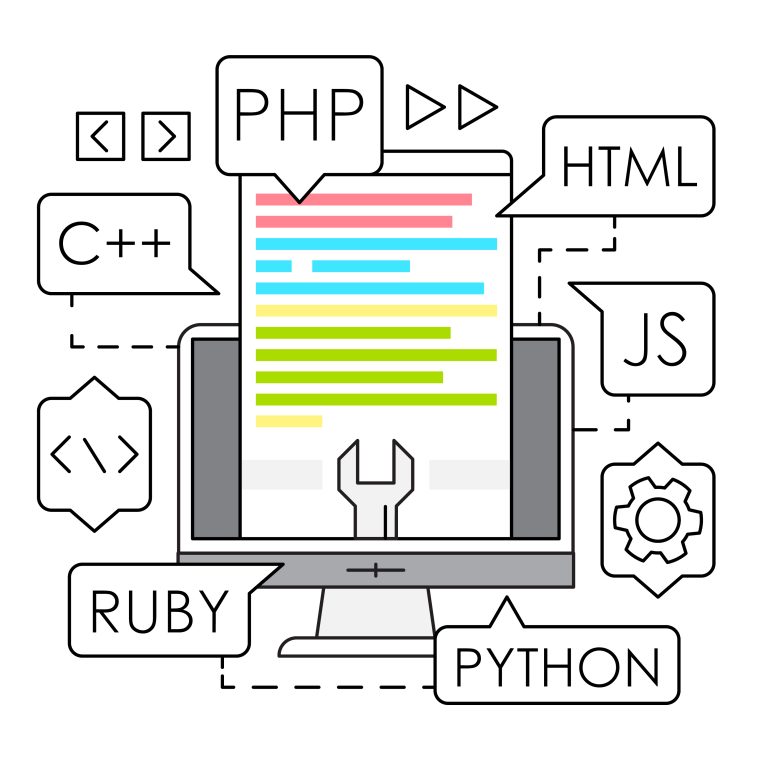In the ever-evolving landscape of web development, PHP remains a cornerstone for crafting powerful and dynamic web applications. To streamline development, PHP frameworks have emerged as indispensable tools, offering structure, efficiency, and scalability. With an array of options available, selecting the right PHP framework is crucial for building robust web apps. Here, we’ll explore some of the best PHP frameworks that empower developers to create exceptional web applications.
- Laravel: Renowned for its elegant syntax and developer-friendly nature, Laravel stands out as one of the most popular PHP frameworks. It simplifies common tasks such as routing, authentication, caching, and more, fostering rapid development. Laravel’s expressive ORM, eloquent, facilitates database operations, while its robust ecosystem of packages and an active community ensure continuous enhancement.
- Symfony: Known for its modularity and versatility, Symfony offers a set of reusable PHP components and libraries that facilitate building web applications of any scale. Its flexibility allows developers to pick and choose components as needed, enabling tailored solutions. Symfony’s robustness, combined with a thriving community and long-term support, makes it a preferred choice for complex projects.
- CodeIgniter: As a lightweight yet powerful PHP web app framework, CodeIgniter excels in speed and simplicity. It provides a straightforward structure, making it ideal for beginners and those seeking a minimalistic approach. Despite its simplicity, CodeIgniter doesn’t compromise on functionality, offering features like database abstraction, security, and an easy-to-use interface.
- Yii: Yii, known for its “efficiency first” approach, emphasizes high-performance web application development. Its caching support, strong security features, and a robust set of tools contribute to rapid development. Yii’s extension ecosystem enhances its capabilities, allowing developers to integrate various functionalities seamlessly.
- CakePHP: Recognized for its simplicity and ease of use, CakePHP empowers developers to build applications rapidly without sacrificing flexibility. Its conventions-over-configuration approach minimizes the need for boilerplate code, enhancing productivity. CakePHP’s built-in tools for input validation, SQL injection prevention, and security make it a reliable choice for developing secure web applications.
Choosing the right PHP framework depends on various factors such as project requirements, scalability, community support, and learning curve. While these frameworks for php stand out among the multitude available, each excels in different aspects, catering to diverse developer preferences and project needs.
For instance, Laravel’s elegant syntax and rich ecosystem make it suitable for building intricate applications requiring extensive features. Symfony’s modularity suits projects where flexibility and customization are paramount. CodeIgniter’s lightweight nature caters to smaller projects with a focus on simplicity and speed. Yii’s emphasis on performance makes it ideal for high-traffic applications, while CakePHP’s convention-based approach simplifies development for those prioritizing ease of use.
Additionally, the PHP framework landscape continues to evolve with updates, new releases, and community-driven enhancements. Staying updated with the latest trends and advancements in these frameworks is essential for developers aiming to leverage the most efficient tools for web app development.
Laravel
Laravel, often described as the “PHP framework for artisans,” provides an expressive syntax that simplifies common tasks and boosts developer productivity. Its powerful ORM, eloquent, enables seamless database interaction while its Blade templating engine ensures elegant and reusable front-end layouts. Laravel’s artisan command-line tool facilitates repetitive tasks, further enhancing efficiency. Additionally, Laravel’s ecosystem includes robust packages like Passport for API authentication and Horizon for monitoring queued jobs.
Symfony
Symfony’s strength lies in its modularity, allowing developers to cherry-pick components based on project requirements. Its reusable PHP components, known as Symfony Components, provide a solid foundation for building scalable applications. Moreover, Symfony’s console component simplifies command-line tasks, while Twig offers a flexible templating engine. Its event dispatcher and robust cache system contribute to its versatility, making it suitable for projects of varying complexities.
CodeIgniter
CodeIgniter’s lightweight nature doesn’t compromise on functionality. Its small footprint and straightforward configuration make it a go-to choice for developers seeking simplicity and performance. With built-in security features like cross-site scripting (XSS) filtering and CSRF protection, CodeIgniter prioritizes web application security without adding complexity. Its clear documentation and ease of learning make it an excellent starting point for developers new to PHP frameworks.
Yii
Yii’s focus on performance and efficiency makes it a preferred framework for high-traffic applications. Its caching support, including data caching and fragment caching, significantly boosts application speed. Yii’s Gii code generator simplifies repetitive tasks like CRUD operations, while its security features, such as input validation and output filtering, ensure robust protection against common vulnerabilities.
CakePHP
CakePHP’s conventions-based approach accelerates development by minimizing configuration overhead. Its ORM, data validation, and built-in tools for handling common tasks like authentication and authorization streamline the development process. CakePHP’s scaffolding functionality generates basic CRUD operations, expediting initial stages of application development.
Each PHP framework mentioned here has its strengths and specialties, making it essential to consider project requirements, scalability needs, and development team familiarity when choosing the ideal framework.
In conclusion, PHP frameworks play a pivotal role in streamlining web application development by offering structure, efficiency, and a plethora of features. Choosing the best PHP framework involves evaluating project requirements, scalability needs, and developer familiarity. Whether it’s Laravel’s elegance, Symfony’s modularity, CodeIgniter’s simplicity, Yii’s performance, or CakePHP’s convention-driven approach, each framework offers unique advantages to suit varying development preferences and project scopes. Embracing these frameworks empowers developers to craft robust and scalable web applications that meet modern-day demands.
Remember, the choice of a PHP framework significantly influences the development process, so selecting the right one is key to building exceptional web applications.
In the dynamic realm of web development, mastering these PHP frameworks opens doors to creating innovative, efficient, and robust web applications that cater to the ever-evolving needs of users and businesses alike.




